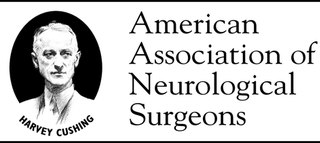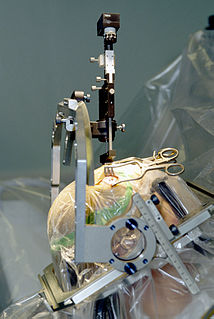
Neurosurgery, or neurological surgery, is the medical specialty concerned with the prevention, diagnosis, surgical treatment, and rehabilitation of disorders which affect any portion of the nervous system including the brain, spinal cord, peripheral nerves, and extra-cranial cerebrovascular system.
Ralph Bingham Cloward was an American neurosurgeon. He attended the University of Hawaii, finished college in Utah in 1930, thereafter medical school in Utah and finished his degree as a medical doctor at Rush Medical School in Chicago in 1934. He attended as a resident at the University of Chicago under Dr. Bailey. He thereafter moved to Hawaii, where he became the archipelago's first practising neurosurgeon. In connection with the attack on Pearl Harbor in 1941, he performed 44 craniotomies in 4 days.
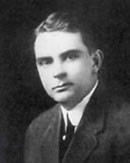
Walter Edward Dandy was an American neurosurgeon and scientist. He is considered one of the founding fathers of neurosurgery, along with Victor Horsley (1857–1916) and Harvey Cushing (1869–1939). Dandy is credited with numerous neurosurgical discoveries and innovations, including the description of the circulation of cerebrospinal fluid in the brain, surgical treatment of hydrocephalus, the invention of air ventriculography and pneumoencephalography, the description of brain endoscopy, the establishment of the first intensive care unit, and the first clipping of an intracranial aneurysm, which marked the birth of cerebrovascular neurosurgery. During his 40-year medical career, Dandy published five books and more than 160 peer-reviewed articles while conducting a full-time, ground-breaking neurosurgical practice in which he performed during his peak years about 1000 operations per year. He was recognized at the time as a remarkably fast and particularly dextrous surgeon. Dandy was associated with the Johns Hopkins University School of Medicine and the Johns Hopkins Hospital his entire medical career. The importance of his numerous contributions to neurosurgery in particular and to medicine in general has increased as the field of neurosurgery has evolved.
John A. Jane, Sr. was an American neurosurgeon, and Professor of Neurosurgery at the University of Virginia. He was Chairman of the Department of Neurosurgery at the University of Virginia from 1969-2006. Dr. Jane was the program director for the hospital's residency training program in Neurosurgery. He is the former editor-in-chief of the Journal of Neurosurgery, a position he had held from 1992 to 2013. During his tenure as the Journal of Neurosurgery's editor, he also founded the Journal of Neurosurgery: Spine, the Journal of Neurosurgery: Pediatrics, and Neurosurgical Focus, the first peer-reviewed, online neurosurgery journal. Dr. Jane treated actor Christopher Reeve after the horse riding accident that left Reeve a quadriplegic.
Paul Bucy was an American neurosurgeon and neuropathologist who was a native of Hubbard, Iowa. He is known both for his part in describing the Klüver–Bucy syndrome, his academic life as a teacher in the neurosciences, and for his founding in 1972 and editing Surgical Neurology – An International Journal of Neurosurgery and Neuroscience" from 1972 to 1987.
Professor Francis John Gillingham was a British neurosurgeon.
Roy Glenwood Spurling was an American neurosurgeon remembered for describing Spurling's test.
Ramamurthi Balasubramaniam was an Indian neurosurgeon, author, editor, a pioneer in neurosurgery in India and often recognized as the Father of Neurosurgery of India. He set up the Department of Neurosurgery at the Government General Hospital, Chennai in 1950, the Department of Neurosurgery at the Madras Medical College and founded the Institute of Neurology, Madras in the 1970s. He was awarded the Padma Bhushan and the Dhanvantri Award for his contribution to the field of Neurosurgery in India.
Eben Alexander III is an American neurosurgeon and author. His book Proof of Heaven: A Neurosurgeon's Journey into the Afterlife (2012) describes his 2008 near-death experience and asserts that science can and will determine that the brain does not create consciousness and that consciousness survives bodily death. Alexander is also the author of the 2014 book The Map of Heaven which builds on the claims in his previous book, and coauthor of the 2017 book Living in a Mindful Universe which describes his personal journey since 2008.
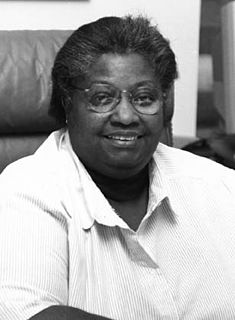
Alexa Irene Canady is a retired American medical doctor specializing in neurosurgery. She was born in Lansing, Michigan and earned both her bachelors and medical degree from the University of Michigan. After completing her residency at the University of Minnesota in 1981, she became the first black person to become a neurosurgeon. This came after the first American woman was board certified in Neurosurgery in 1960. Canady specialized in pediatric neurosurgery and was the chief of neurosurgery at the Children's Hospital in Michigan from 1987 until her partial retirement in 2001. In addition to surgery she also conducted research and was a professor of neurosurgery at Wayne State University. After her retirement, she moved to Florida and maintained part-time practice at Pensacola's Sacred Heart Hospital until her full retirement in January 2012. In 1989, Canady was inducted into the Michigan Women's Hall of Fame, and in 1993 she also received the American Medical Women's Association President's Award. Dr. Canady was known amongst her peers as a patient-focused surgeon who cared deeply about each of her patients.

Roger Härtl is a board-certified neurological surgeon at Weill-Cornell Medical College and NewYork-Presbyterian Hospital. He is Director of Spinal Surgery at the Weill Cornell Brain & Spine Center in New York and the neurosurgeon for the New York Giants. Härtl has been named by Becker's Spine Review as one of the Top 50 Spine Surgeons in the United States as well as one of the Top 10 Spine and Neurosurgeon Leaders at Non-Profit Hospitals. He was named one of New York's Top Doctors by New York magazine after he saved the life of New York firefighter Eugene Stolowski, whose leap from a burning building left him critically injured.
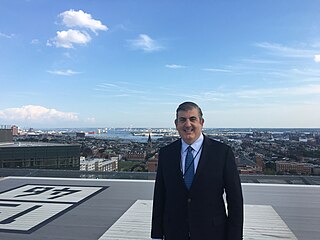
Nicholas Theodore is an American neurosurgeon and researcher at Johns Hopkins University School of Medicine. He is known for his work in spinal trauma, robotics and personalized medicine. He is Director of the Neurosurgical Spine Program at Johns Hopkins and Co-Director of the Carnegie Center for Surgical Innovation at Johns Hopkins.
Albert Loren Rhoton Jr., was an American neurosurgeon and a professor specializing in microsurgical neuroanatomy. He developed and introduced a number of microsurgical techniques that improved the safety and effectiveness of neurosurgery, including the use of the surgical microscope in neurosurgery. He also designed many of the commonly used of microneurosurgical instruments, which bear his name. Such tools in use worldwide include the Rhoton Micro Dissectors designed for delicate work in the treatment of brain aneurysms and tumor resection.
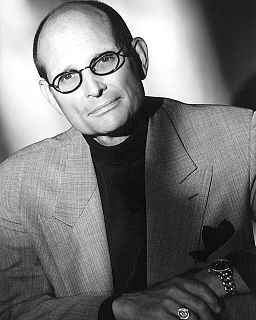
Michael L. J. Apuzzo is an American academic neurological surgeon, the Edwin M. Todd/Trent H. Wells, Jr. Professor Emeritus of Neurological Surgery and Radiation Oncology, Biology, and Physics at the Keck School of Medicine, of the University of Southern California. He is also editor emeritus of the peer-reviewed journals World Neurosurgery and Neurosurgery. He is distinguished adjunct professor of neurosurgery at the Yale School of Medicine, distinguished professor of advanced neurosurgery and neuroscience and senior advisor, at the Neurological Institute, Wexner Medical School, The Ohio State University, and adjunct professor of neurosurgery, Weill Cornell Medicine, Department of Neurological Surgery & Weill Cornell Brain and Spine Center.
Frank Henderson Mayfield, was an American neurosurgeon and founder of the Mayfield Clinic and Spine Institute in Cincinnati, Ohio. A pioneer in brain and spine surgery, he invented the spring aneurysm clip and the Mayfield skull clamp. Mayfield is best known for his clinical interests in peripheral nerve and spine injuries, development of neurosurgical instruments, and medical politics.
Charles Anthony Fager was born in Nassau, Bahamas, British West Indies. He had a long career as a neurosurgeon in the United States.
Stewart Dunsker M.D., a neurosurgeon, is Professor and Director of Spinal Neurosurgery at the University of Cincinnati College of Medicine, and Director of the Department of Neurosurgery at the Christ Hospital, Cincinnati, Ohio.
Rashiduddin Ahmad was a Bangladeshi neurosurgeon. He received Independence Day Award in 1999 from the Government of Bangladesh. He was a sportsperson in his early days and was the recipient of 2007 Bangladesh National Sports Award in the basketball category.






